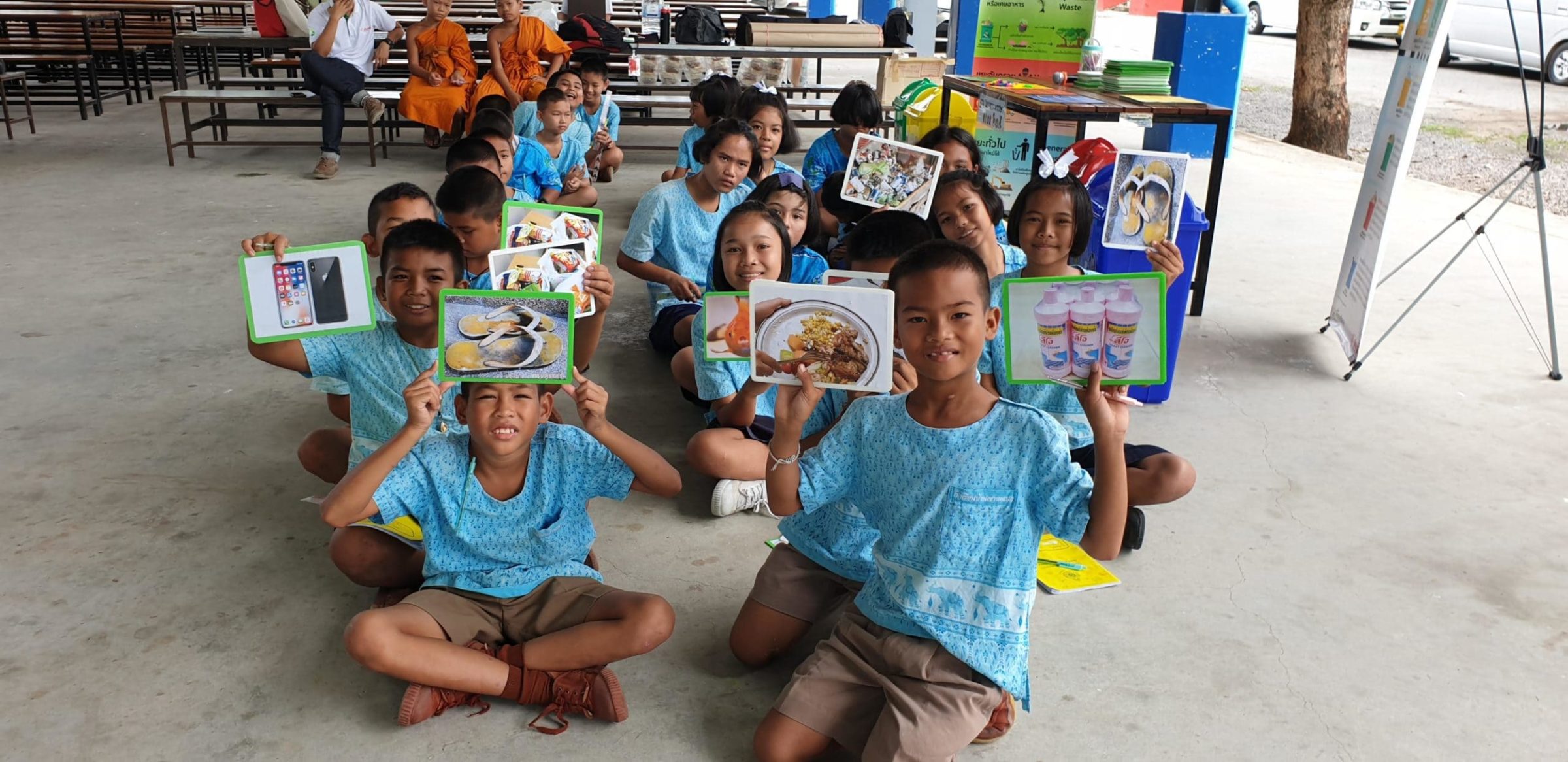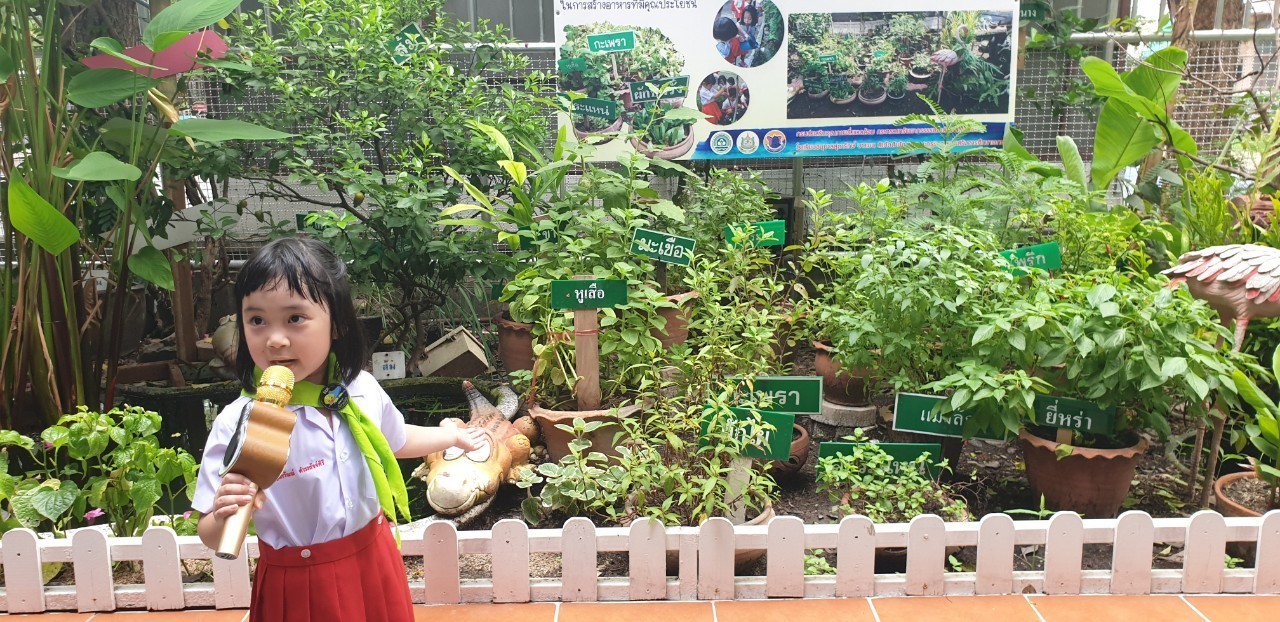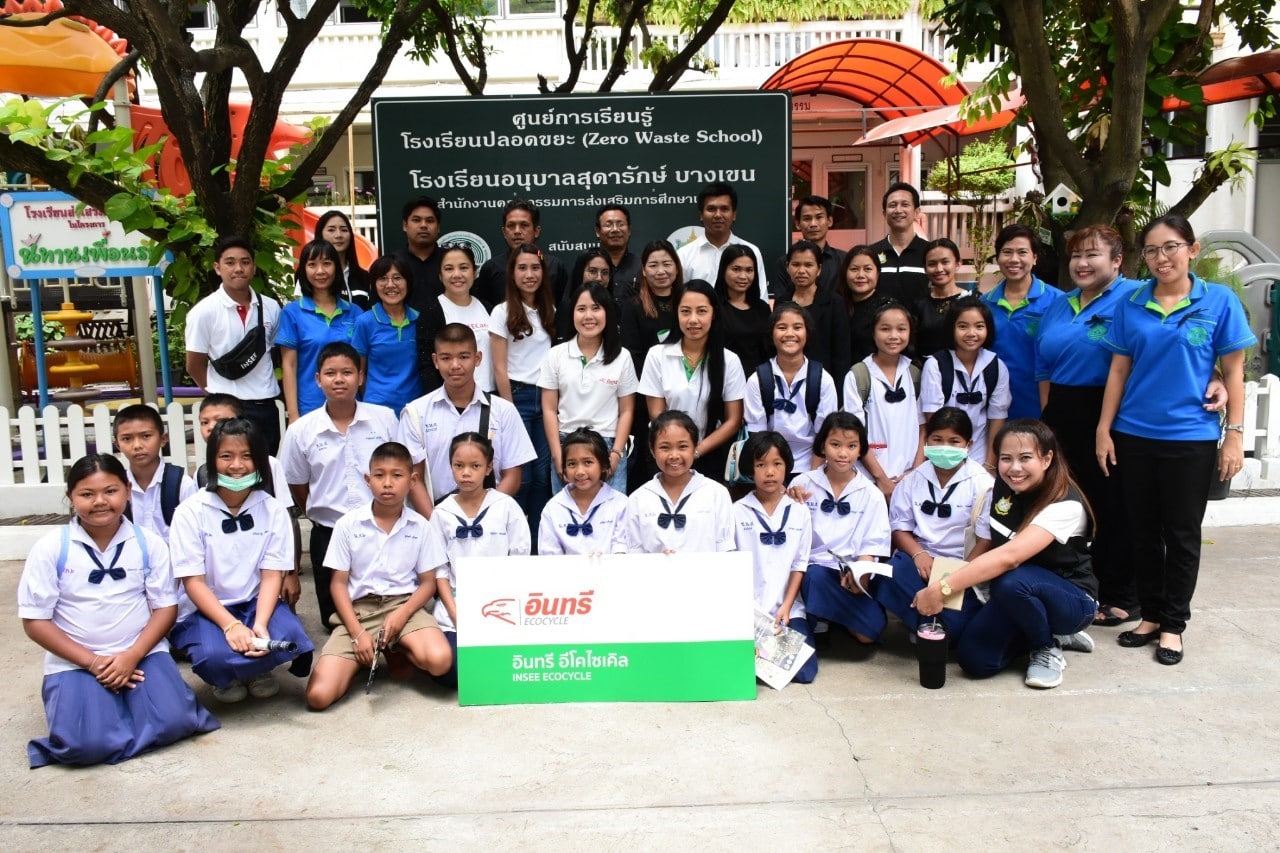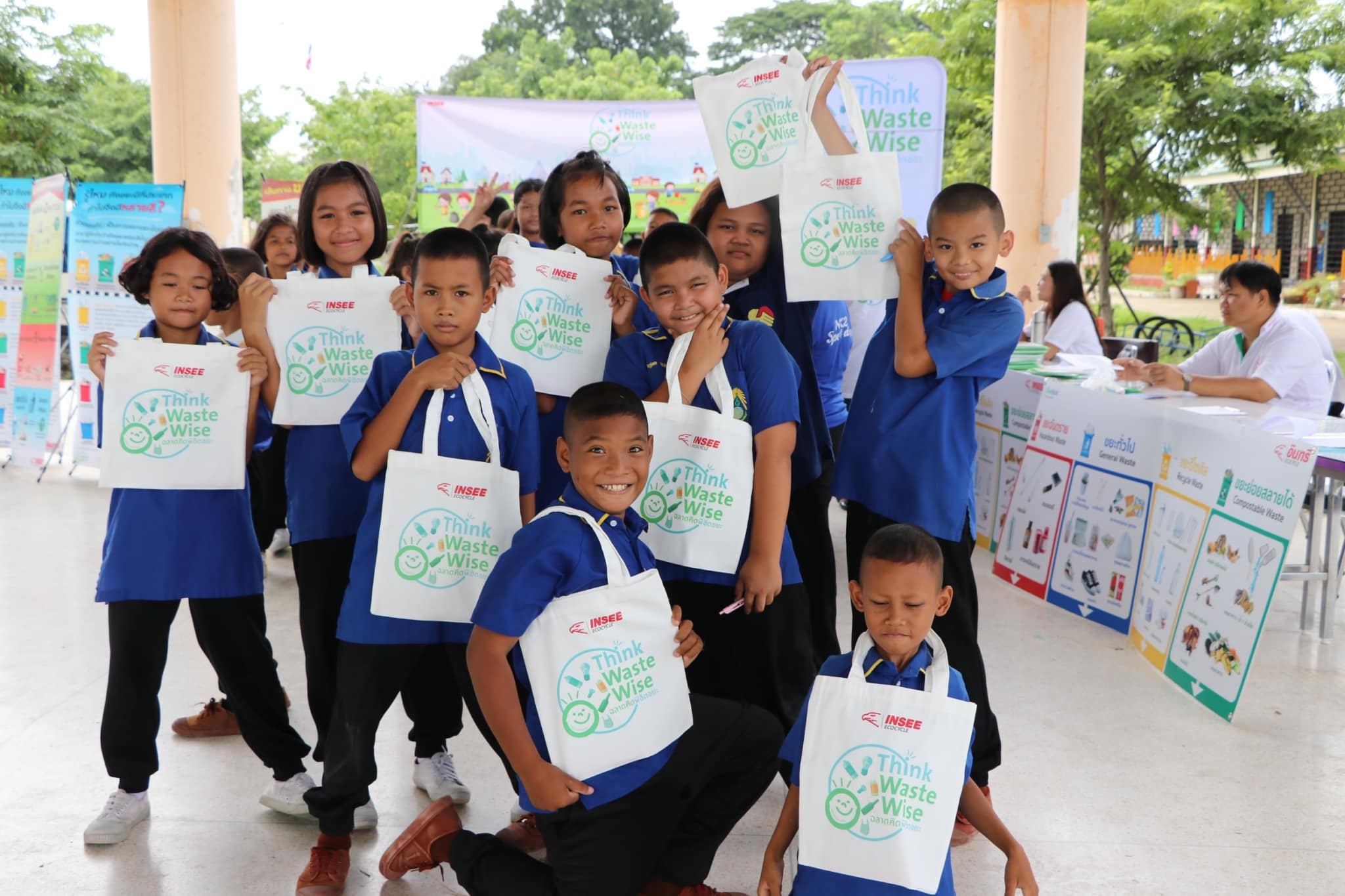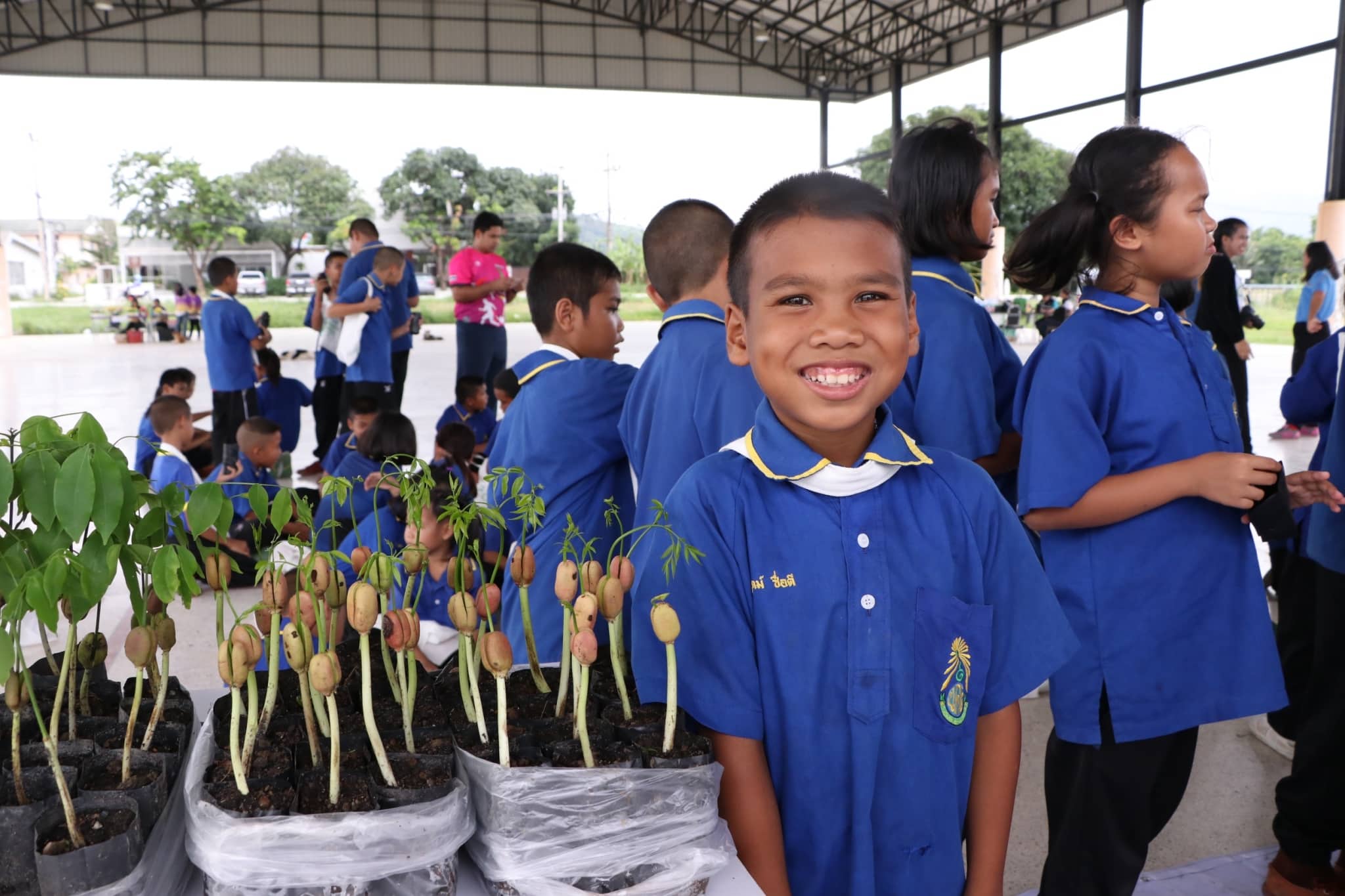Feature Stories

Think Waste Wise: INSEE Ecocycle brings its key sustainability initiative to local schools
INSEE Ecocycle, Siam City Cement Group, and the Department of Environmental Quality have joined forces to kick off the Think Waste Wise initiative. The initiative aims to educate local children on the importance of waste management, while encouraging meaningful action on waste separation before disposal.
In preparation for the initiative, INSEE Ecocycle visited various Zero Waste Schools in Thailand to learn from their successes and trade knowledge with them.
Sustainable waste management is everyone’s responsibility. The government, private companies, and citizens alike must all work together to achieve it. By educating and empowering young students, the Think Waste Wise initiative is preparing the next generation to play its part in securing a greener future.
Last year’s activities
In 2019, INSEE Ecocycle brought the Think Waste Wise initiative to three schools in Thailand: Tab Kwang Community Schools 1 and 2 in Saraburi, and Khaotabak School in Chonburi.
The leaders of the initiative distributed educational materials, ran waste management workshops, set up waste bank facilities, provided color-coded waste bins, and implemented waste separation systems. INSEE Ecocycle also led training stations on waste separation, the 3Rs (reduce, reuse, recycle), and food waste management.
Aside from the core programs, each school had its own specific goals. Khaotabak School wanted to learn how to create useful products from waste. Tab Kwang Community School 1 wanted to reduce all forms of plastic waste. Tab Kwang Community School 2 wanted to reduce single-use plastic from bottles and snacks, while also learning to better manage food waste. 64% of Thailand’s municipal waste comes from food waste, so it is highly commendable that Tab Kwang Community School 2 is taking positive steps to improve this often-overlooked area of waste management.
All three schools that participated in the initiative are now much better equipped for sustainable waste management, and the students are all ready to be sustainability leaders.
This year’s initiative
This year, INSEE Ecocycle will expand the campaign to other schools in its operating areas. It will also encourage the three schools that took part in the initiative in 2019 to become learning centers for their communities. As the initiative has been so successful in schools, INSEE is planning to expand the project and bring it to other community stakeholders, such as temples, villages, and orphanages.
INSEE recently visited the following three orphanages: Foundation for the better life of Children, Laksi Bangkok on January 18th, 2020; Baan Jing Jai Orphanage, Bang Lamung, Chon Buri on January 25th, 2020; and Saraburi Home for girls, Phra Phutthabat, Saraburi on February 1st, 2020.
Volunteers from the INSEE team provided lunch and donations of daily necessities. They also introduced the Think Waste Wise initiative to teach the children about waste separation before disposal and raise their awareness of environmental issues.
"While Thailand still has many challenges to overcome, the Think Waste Wise initiative has proven that major advancements are possible. It’s just a matter of changing mindsets and behaviors."
This year’s initiative
Every year, Thailand produces upwards of 27.8 million tons of waste. 4,894 local administrative offices have systems that collect waste and transport it to disposal locations. The remaining 2,881 local administrative offices, however, still do not have any waste management measures in place – locals are on their own. While Thailand still has many challenges to overcome, the Think Waste Wise initiative has proven that major advancements are possible. It’s just a matter of changing mindsets and behaviors. The government certainly has a crucial role to play in waste management, but local communities can also make a huge difference. By thinking about waste separation before disposal and seeing waste as a resource that can be repurposed and reused, communities can create a circular economy at the local level. That’s what Think Waste Wise is all about.




